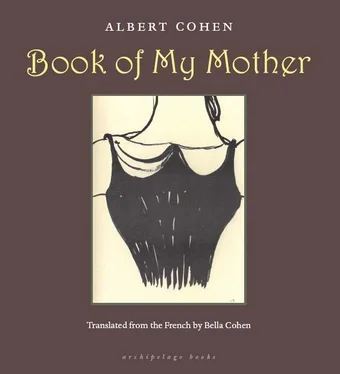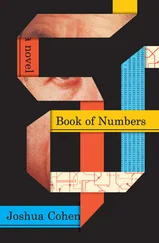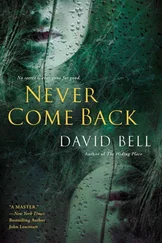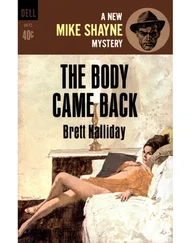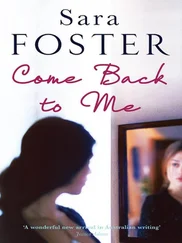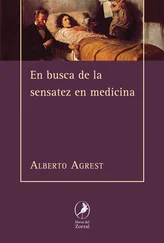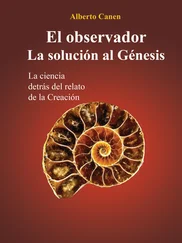Albert Cohen - Book of My Mother
Здесь есть возможность читать онлайн «Albert Cohen - Book of My Mother» весь текст электронной книги совершенно бесплатно (целиком полную версию без сокращений). В некоторых случаях можно слушать аудио, скачать через торрент в формате fb2 и присутствует краткое содержание. Год выпуска: 2012, Издательство: Archipelago Books, Жанр: Современная проза, на английском языке. Описание произведения, (предисловие) а так же отзывы посетителей доступны на портале библиотеки ЛибКат.
- Название:Book of My Mother
- Автор:
- Издательство:Archipelago Books
- Жанр:
- Год:2012
- ISBN:нет данных
- Рейтинг книги:5 / 5. Голосов: 1
-
Избранное:Добавить в избранное
- Отзывы:
-
Ваша оценка:
- 100
- 1
- 2
- 3
- 4
- 5
Book of My Mother: краткое содержание, описание и аннотация
Предлагаем к чтению аннотацию, описание, краткое содержание или предисловие (зависит от того, что написал сам автор книги «Book of My Mother»). Если вы не нашли необходимую информацию о книге — напишите в комментариях, мы постараемся отыскать её.
, which later grew into
. Achingly honest, intimate, moving, it is a tribute to all mothers.
Albert Cohen
Solal
Mangeclous
Belle du Seigneur
Les Valereux
Book of My Mother — читать онлайн бесплатно полную книгу (весь текст) целиком
Ниже представлен текст книги, разбитый по страницам. Система сохранения места последней прочитанной страницы, позволяет с удобством читать онлайн бесплатно книгу «Book of My Mother», без необходимости каждый раз заново искать на чём Вы остановились. Поставьте закладку, и сможете в любой момент перейти на страницу, на которой закончили чтение.
Интервал:
Закладка:
XVI
WIDE AWAKE I dream, and I tell myself what it would be like if she were alive. I would live with her simply in solitude. A little house by the sea, far from mankind. Just the two of us, she and I, in a crooked little house. A very peaceful and untalented little life. I would forge myself a new soul — the soul of a little old lady like her — to avoid embarrassing her, and make her utterly happy. I would stop smoking, just to please her. We would cope nicely together with the household chores. We would do the cooking, making little remarks like “I really do think that a bit, just a touch, of chicory brings out the flavor in coffee” or “It’s better not to put in enough salt rather than too much — you can always add some later.” Like her, I would pat the dinner with a wooden spoon. Two old sisters, she and I, and while one strained the macaroni the other would grate the cheese. We would sweep up everywhere, chatting all the time, we would polish the brass, and when all was done we would sit ourselves down. We would smile at each other in contentment and good companionship, sigh with satisfaction, pleasantly tired, and happily survey the result of our work, our kitchen so spotless and tidy. For love of her and to please her I would play up my satisfaction. And then we would reward ourselves with hot coffee, and as we sipped she would smile at me through her glasses, which would be touching the rim of her cup. We would sometimes get the giggles together. We would always be doing each other little turns with a smile. In the evening after dinner, when everything was perfectly trim, we would chat cozily by the fire, she and I, looking at each other so agreeably, two real little old ladies, so easy and comfortable and sincere, two little pippins, impish and contented, with very few teeth but sprightly as they come, and for love of her I would be sewing like her, Maman and I, sworn pals, chatting together, together forever. And that is my idea of paradise.
I can hear my mother saying with her wise smile, “That life wouldn’t suit you. You couldn’t live that way. You wouldn’t change.” And she adds what she so often said to me in her lifetime: “My crazy lord, my prince of ancient times.” She also says, drawing closer, “And, anyway, I wouldn’t like you to change. Don’t you know that mothers like their sons to be superior and even a bit ungrateful? It’s a sign of good health.”
I raise my head, I look at myself in the mirror, and, while some chap on the radio goes on and on, I watch myself write — gentle, good as gold, with an expression all at once almost kind, absorbed and peaceful as a child engrossed in a very foolish forbidden game, absorbed, weightless, smiling slightly, holding the paper lightly with the left hand while the right advances with childlike application. I feel quite sorry for this man who is writing with such loving care and who is going to die soon.
XVII
HERE I AM at my table, with my bones all ready, waiting for it to end, for my own turn to come, one year or three years or at most twenty years from now. But I go on writing as if I were immortal, with such interest and care, like a welder conscientiously going on with his welding while the ship goes down. Here I am, tricking my orphan’s grief with inky signs, awaiting the dark dampness where I shall be the mute companion of certain silent little lives which get about in wriggles. I can see myself now. There is a worm, a very handsome brown-freckled little fellow, who has come to pay me a visit. He makes his way into my nostril, which does not shudder, for it has become senseless. The worm is at home. My nostril is his house and his little larder.
Heavy lies the earth upon me, upon me imperturbable and unprotesting, heavy the rain-drenched silent earth. And I am all alone like my mother, all alone and stretched out forever, not very well dressed, in a suit which is unbrushed and loose fitting because the gent inside it has got rather slim. All alone, poor useless creature whom in turn they have dumped in the earth, with no company except the parallel rows of his mute comrades, those stretched-out regiments of the silent who once were alive, a corpse all alone in the black silence who grins all over his face from the other world, while a person who loved him so dearly and who wept so bitterly at the funeral three years ago is wondering whether to wear her white dress to that dance, but perhaps not: the pink might be better.
XVIII
SHE NEVER ANSWERS, she who always answered. I try to believe it is a good thing she is dead. One comforting thought is that now she is dead she is no longer Jewish and they can no longer harm her, no longer frighten her. In her graveyard she is no longer a Jewess with eyes on the defensive, carnally denying guilt, a Jewess with her mouth gaping in obscure stupefaction, the legacy of fear and waiting. The eyes of living Jews are always afraid. Misfortune is our specialty of the house. You know, in smart restaurants they have a tart which is the speciality of the house. Our speciality of the house is misfortune: wholesale, trade, and retail. Another comforting thought is that she will not see me die.
Nothing more. Silence. She is silence. “Dead,” I murmur ceaselessly at the window beneath the sky beloved of foolish lovers but which orphans detest because their mother is not there. “Dead,” I murmur with the slight tremor of the insane. “She who thought, hoped, and sang is dead,” I murmur, resisting the dangerous lure of paradise. “Dead,” I repeat idiotically, with a smile which does little to console. All this is not very varied and not very amusing. Nor is it so for me. For pity’s sake, do not laugh. After all, the death of my mother is the only thing in the world which is tragic. You do not agree? Just wait till it is your turn to be the mourner. Or the mourned.
I turn around and see things she saw and touched. They are here beside me: this pen, that suitcase. But she herself is not here. I call her by her name of majesty, and she does not answer. That is horrible, for she always answered and came running. How often I called her in her lifetime, for everything, for nothing, to find mislaid keys or pens or to chat, and always she would come running, and always she would find the keys or the pen, and always she would have tales of ancient times to tell. I went and opened the door of my room automatically, but she was not behind the door.
A little bird came to peck on the windowsill and I shooed it away. She loved to watch fluffy little birds. They serve no purpose now and I want no more of them. Enough of that music. I have turned off the radio because all great music is my mother and her eyes which cherished me, which looked at me sometimes with wild tenderness. Now a brass band is marching down the street. How joyful they are, those living creatures, and how alone am I. I shall go and keep myself company in front of the mirror. That is a pastime, a little trick to play on death. And in the mirror there will be someone who will sympathize.
I stare into the mirror, but it is my mother who is in the mirror. My grief becomes physical and I am pale and clammy. My cheeks are wet not with tears — the privilege of those who suffer little — but with drops trickling down from my forehead. The sweat of the death of my mother is ice cold. And suddenly there comes an indifference to distress, an anesthetic for distress, a little game of distress which makes me automatically press my eyeball as I gaze into the mirror. This creates an optical illusion and I see two orphans in the mirror. And with me that makes three, which is company. Such grief is not very poetic, not very noble. The little game of pressing my eyeballs gives me a dismal interest in life, a semblance of interest in something. Should I eat cake, just for something to do? No, I want the cakes she made. What is left to me is a mirror and the bewilderment which I contemplate in it, which I contemplate with a smile so as to want to simulate living, while I murmur with a slightly mad little laugh that everything in the garden is lovely and that I am sunk. Sunk, sank, sink, sonk. I have made a discovery: being miserable does not mean you can’t have a bit of fun.
Читать дальшеИнтервал:
Закладка:
Похожие книги на «Book of My Mother»
Представляем Вашему вниманию похожие книги на «Book of My Mother» списком для выбора. Мы отобрали схожую по названию и смыслу литературу в надежде предоставить читателям больше вариантов отыскать новые, интересные, ещё непрочитанные произведения.
Обсуждение, отзывы о книге «Book of My Mother» и просто собственные мнения читателей. Оставьте ваши комментарии, напишите, что Вы думаете о произведении, его смысле или главных героях. Укажите что конкретно понравилось, а что нет, и почему Вы так считаете.
